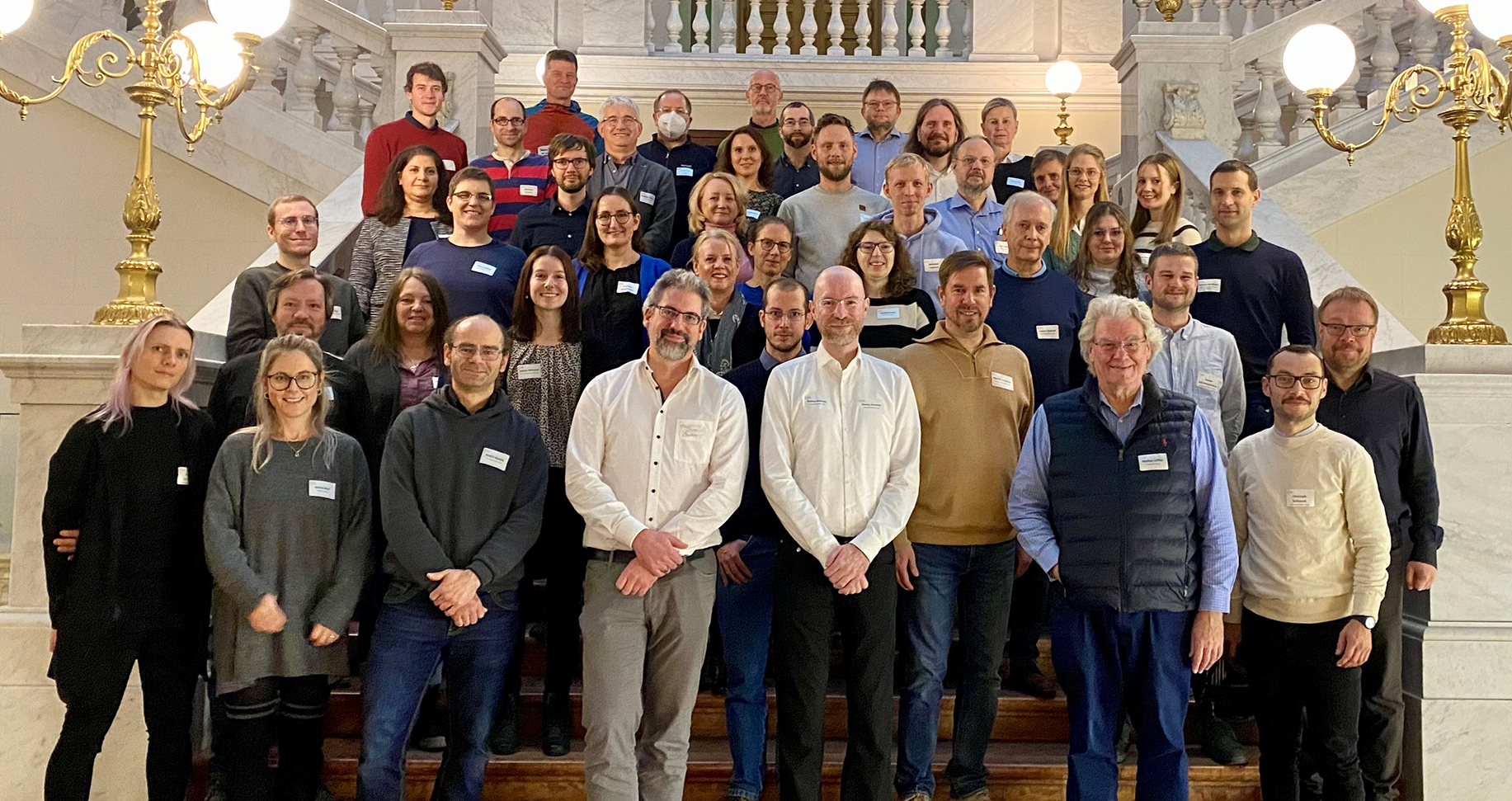
Perspectives on the further development of the Data Integration Centers | Last SMITH Closed Meeting 2023
At the end of November, around 50 employees from the SMITH Consortium met at the Albertina Library at Leipzig University for the last retreat of the year. The main topics were the practical use of routine clinical data and the technical status of the established Data Integration Centers.
At the opening of the event, SMITH Consortium leader Prof. Dr. Markus Löffler presented an idea for a new evaluation project in addition to the current organizational developments in the Medical Informatics Initiative (MII). The aim is to record the characteristics of patients with signed Broad Consent in order to identify possible distortions in the available clinical data in comparison to all patients at the university hospitals.
In addition, Professor Löffler has announced that an application for the continuation of NUM-DIZ will be submitted in 2024. The implementation of the continuation is planned as part of the follow-up project NUM-DIZ 3.0 from the third quarter of 2025. Professor Löffler emphasized the need to define the core tasks and capabilities of the Data Integration Centers even more clearly across all locations. These include tasks in project and research data management, the technical mapping of Broad Consent, anonymization and pseudonymization tasks as well as specific data extraction and support with data analysis.
Initial results from the HELP clinical Use Case will be published soon
The HELP clinical Use Case then illustrated what is possible with the Data Integration Centers. Julia Palm, research associate at the Jena University Hospital, presented the first final results of the HELP study. For two years, physicians treating staphylococcal bloodstream infections at five university hospitals tested the HELP manual as a Clinical Decision Support System (CDSS). Most of the data for the evaluation was collected through the Data Integration Centers. The introduction of the additional HELP CDSS service on the wards demonstrated the safety of the CDSS. At the same time, a survey of users of the HELP manual showed that it was predominantly perceived as user-friendly and helpful. Two publications on the clinical and technical aspects of the HELP application are in progress.
In the future, all clinical researchers will be able to apply for their medical data projects via the MII infrastructure. The Data Integration Centers will provide the necessary data. In the MII Academy, “Clinician Scientists” are informed with learning videos about the handling of feasibility requests in the German Research Data Portal for Health (FDPG), the legal framework for data use and evaluation methods. Prof. Dr. Toralf Kirsten (University of Leipzig) presented the current status of the MII Academy. The first video presentations have already been submitted and are currently being processed. Registration will be possible in spring 2024.
Functions of the Data Integration Centers for the secure use of research data are being expanded
In addition to the concrete and future use of clinical data, the event focused on the current status and further development of Data Integration Centers. Among others, Dr. Marcus Wurlitzer from the IT department of the University Medical Center Hamburg-Eppendorf (UKE) presented the concept of the “Data Hotel” using the UKE as an example. This allows easy access to local clinical data for research purposes in compliance with data protection regulations. In the “Data Hotel”, clinical data from the local hospital information system (KIS) can only be accessed temporarily and cannot be downloaded. One perspective would be to link the data hotel to the infrastructure of the Data Integration Centers.
The agenda item “Consolidation of the NUM-DIZ” also generated lively discussion. Prof. Dr. Markus Sedlmayr from the MIRACUM Consortium (Technical University of Dresden) ventured a look into the future. Following Professor Löffler’s announcement of the continuation of the NUM-DIZ, Professor Sedlmayr presented a procedure for the continuation of the Data Integration Centers. “The NUM-DIZs should become an integral part of clinical research and care,” he emphasized.
Other topics discussed at the closed meeting included the status of the Data Integration Centers in Bochum, Rostock and Düsseldorf, the technical connection of the Data Integration Centers to the German Research Data Portal for Health and experiences with specific data use projects.
The next closed meeting will take place on March 5 and 6, 2024 at the Albertina Library of Leipzig University.

